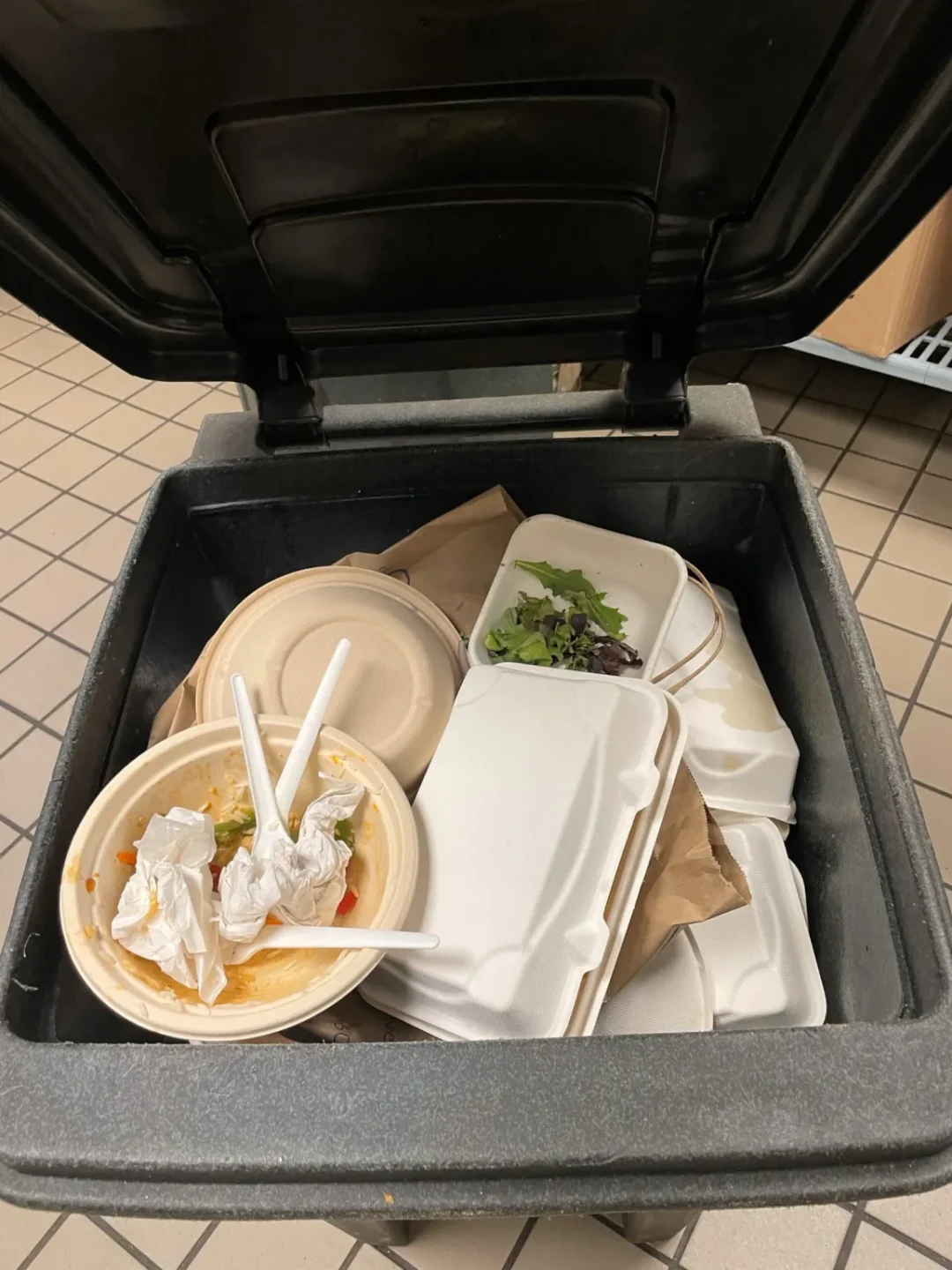Author: Anherutowa Calvo ’27

The Food Waste Crisis in the U.S.
In the United States, food waste has reached staggering levels, with an estimated 30–40% of the food supply going uneaten each year. This not only represents a significant loss of resources, but also contributes to environmental degradation. When food waste ends up in landfills, it decomposes anaerobically, producing methane — a potent greenhouse gas that exacerbates climate change. The environmental and economic costs of food waste have prompted initiatives aimed at reducing waste and finding sustainable ways to manage what is discarded. Composting has emerged as a key strategy in mitigating the impact of food waste, turning potential pollutants into valuable resources for soil health and agricultural productivity.
Advancing Sustainability: The Vision and Operations of the S.C.R.A.P. Lab
At the heart of Princeton University’s sustainability initiatives lies the S.C.R.A.P. Lab (Sustainable Composting Research at Princeton). Established in 2018, this innovative project, part of the Office of Sustainability, aims to tackle food waste and promote eco-friendly practices on campus. We spoke with Eddie Kong ’27, operations assistant at the S.C.R.A.P. Lab, to gain insight into the lab’s operations, goals, and impact.
The S.C.R.A.P. Lab serves as a pilot program to explore how composting and sustainability can be integrated into campus life on a larger scale. Located on Washington Road, the lab’s primary goal is to evaluate and refine composting practices, starting with food scraps collected from the Frist Campus Center. By transforming these scraps into nutrient-rich compost, the lab aims to create a sustainable model that can be expanded across Princeton University.
The lab features two main components essential for effective composting: a shredder and an aerobic composting machine. The shredder cuts through the food- loaded by the S.C.R.A.P. Lab team- and then the tinier sized pieces of food are transported up the auger and into the composting vessel, while the composting machine adds circulation and air to ensure aerobic respiration. This process prevents methane production, which occurs during anaerobic respiration and facilitates the breakdown of organic matter by beneficial bacteria. Kong elaborates on the operational structure: “We have 1–3 assistants per shift. The person at the shredder machine alternates between loading food waste compostable serviceware- such as the ones used at Frist Gallery- and wood chips to aid the composting process. On the other end, assistants meticulously sort through composting trash bags from the Frist Campus Center, removing contaminants to ensure only compostable materials remain.”
The S.C.R.A.P. Lab utilizes a FOR Solutions Model 1000 in-vessel composting system capable of processing up to 5,000 pounds of organic waste per week. The process begins with the input of food scraps, wood shavings, and oxygen. The shredder breaks down these materials before they enter the composting vessel. Inside the vessel, a blower system aerates the mixture every 15 minutes, providing the necessary oxygen for aerobic bacteria to efficiently decompose the organic matter. The drum rotates every hour, ensuring thorough mixing and preventing anaerobic conditions. The result is nutrient-dense compost produced in just five days, along with outputs of water vapor, biogenic CO2, and heat.
Research and Impact
The S.C.R.A.P. Lab’s influence extends beyond day-to-day operations. The lab also facilitates microbial analysis, regenerative agriculture, and urban resilience projects, highlighting the interdisciplinary nature of sustainability research at Princeton. The lab has secured grants for research, allowing students to explore various aspects of composting, such as the effectiveness of different types of wood used in the machines. These research efforts contribute to a deeper understanding of sustainable waste management practices. Since its inception, the S.C.R.A.P. Lab has converted over 150 tons of wasted food into compost and saved 100 tons of CO2-eq. Recently, they have received approval to transition the S.C.R.A.P lab from a pilot program to operational status! This means this will be receiving more support from Facilities, training more lead operators, and focusing on composting post-consumer organics. They will additionally have more bandwidth to include more partnerships!
Getting Involved
The S.C.R.A.P. Lab embodies Princeton University’s commitment to sustainability, providing a practical and impactful approach to waste management. By fostering a community of environmentally conscious individuals, the lab is paving the way for a greener future on campus and beyond. Princeton students can support the S.C.R.A.P. Lab by increasing their awareness of what is compostable, particularly by following guidelines at the Frist Campus Center bins. Interested students can find opportunities to join the S.C.R.A.P. Lab on JobX, with positions available throughout the year. The lab welcomes all help, offering various shift options to accommodate different schedules. To get involved or learn more, visit Princeton University’s S.C.R.A.P. Lab website.
Citations:
Food Waste Faqs. USDA. (n.d.-a). https://www.usda.gov/foodwaste/faqs
The Trustees of Princeton University. (n.d.-a). Composting at Princeton | Sustainability at princeton. Princeton University. https://sustain.princeton.edu/scrap-lab
The Trustees of Princeton University. (n.d.-c). Princeton University’s new Biodigester makes food scraps sustainable. Princeton University. https://www.princeton.edu/news/2019/01/09/princeton-universitys-new-biodigester-makes-food-scraps-sustainable
The Trustees of Princeton University. (n.d.-c). Follow our zero waste guide | sustainability at princeton. Princeton University. https://sustain.princeton.edu/resources/zero-waste
